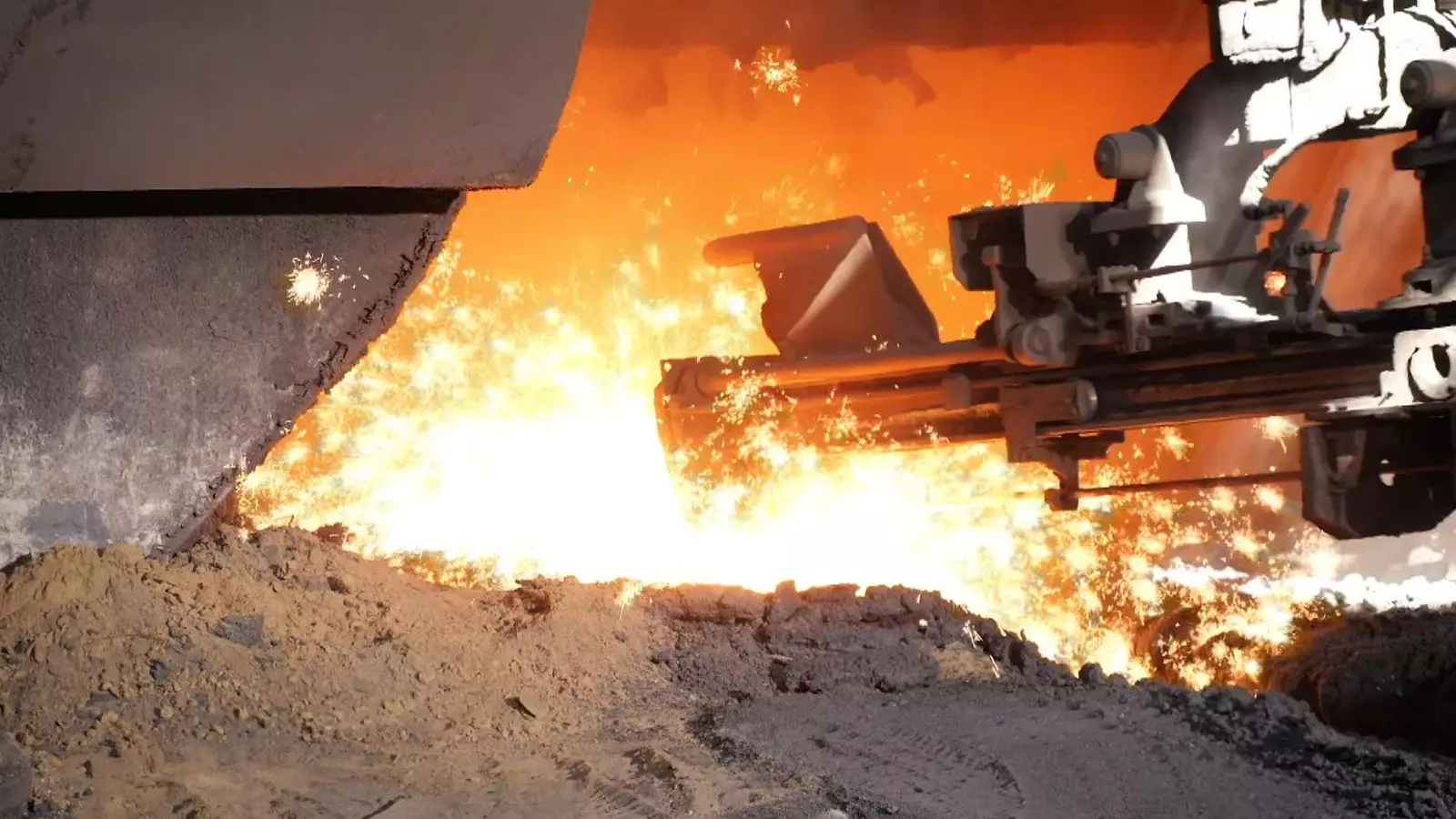The steel industry in Britain, once a symbol of industrial prowess and innovation, now hovers on the precipice of disaster. Recent developments regarding the last operational blast furnaces, specifically in Scunthorpe, underscore a profound crisis. Ownership under Jingye, a Chinese conglomerate, has unveiled a troubling narrative where foreign interests overshadow national heritage and security. The cancellation of critical orders for iron ore and coal signals not merely financial decisions but a broader inclination towards disengagement from British manufacturing. As the news breaks, it poses a fundamental question: can a nation be truly sovereign while its core industries are dictated by far-off owners with tenuous ties to local prosperity?
Negotiation Failures and Economic Consequences
The breakdown of negotiations between the UK government and Jingye has become emblematic of deeper systemic failures. With the recent offer of £500 million intended to modernize the aging infrastructure, one would expect progress. Instead, we are met with refusal and a timeline set for closure that looms ominously. Here lies an eerie paradox: while the world leans towards sustainable development through electric arc furnaces which promise lower carbon emissions, British Steel finds itself at a crossroads, unwilling to adapt due to perceived insufficient support. This raises critical questions about our readiness to transition into the future. Are we trapped in an outdated industrial mindset that prioritizes short-term profits over sustainable growth?
National Security vs. Economic Viability
The imminent closure underscores a dual concern encompassing economic viability and national security. With British Steel as a primary provider of construction materials for infrastructure, its demise threatens to leave the UK reliant on precarious foreign supply chains. During a period of heightened geopolitical tension—partly rooted in the potential return of conflict stemming from a resurgent Trump administration—the stakes have never been higher. The government’s hesitance to act decisively has led to fears that this industry, so vital to the country’s infrastructure, is being sacrificed on the altar of global economics.
Moreover, any attempt at nationalization poses its own pitfalls. Could government involvement turn into a heavy burden on taxpayers, creating a system far removed from efficiency and innovation? The anxiety over potential losses raises the haunting question of whether safeguarding the industry means shackling our economic future. Considering the perilous balance between protecting domestic industries and ensuring taxpayer resources aren’t squandered, it becomes increasingly vital to explore alternative solutions that could serve both the domestic economy and its citizens.
Rethinking Steel Production in a Modern Context
To navigate this treacherous terrain, we must rethink the paradigms of steel production within the UK, and indeed, throughout the western world. The conversation needs to incorporate not only financial incentives but also define a national strategy that focuses on resilience and sustainability. The global call for local supply chains—amid a backdrop of increasing tensions—presents an imperative for an industrial renaissance. A reinvigorated strategy could involve investment in new technologies while incentivizing domestic production, thereby ensuring that future crises do not leave industries vulnerable to the whims of foreign owners.
In the face of a rapidly evolving global landscape characterized by trade wars and resource competition, we must face the facts: our past is rich with legacy, but our future relies heavily on our response to the changing dynamics. The opportunity rests in mobilizing public sentiment and uniting key stakeholders to formulate an industrial strategy attractive enough to entice both investment and innovation.
The Path Forward: A Call to Action
Finally, what remains paramount is the need for clear, actionable steps from the UK government. It is time to mobilize significantly towards protecting not just our steel industry, but the very essence of what it means to contribute to a resilient economy. Delays could be disastrous, and public demand for accountability must echo through the corridors of power. In moments of existential threat, it is in our collective will that we may find solutions so long as the commitment to a robust industrial future remains unwavering. The steel crisis may well serve as a wake-up call, demanding urgent and transformative action from every corner of society to reclaim our industrial strength before it slips away forever.


Leave a Reply